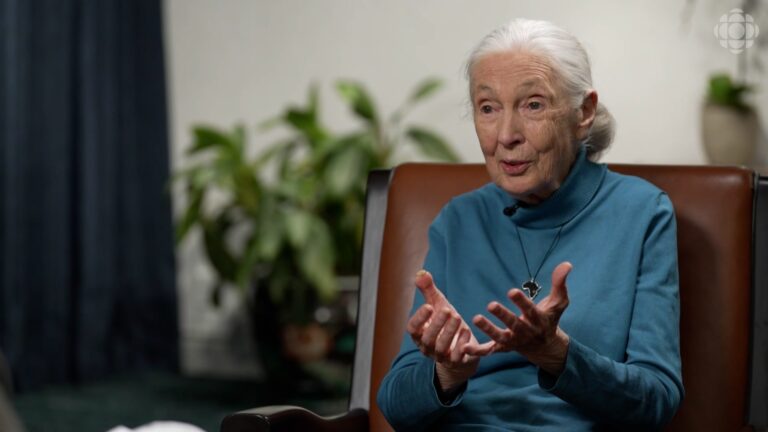California. The world is mourning the death of Dr Jane Goodall, the celebrated British primatologist, ethologist and environmental campaigner, who passed away in California, the United States, on October 1, 2025, aged 91.
Her death was confirmed by the Jane Goodall Institute (JGI), the global organisation she founded in 1977 to advance research, conservation, and youth empowerment.
The Institute said she died of natural causes while in Los Angeles, where she had been scheduled to address a youth event on environmental stewardship.
Dr Goodall was best known for her groundbreaking research on chimpanzees at Gombe Stream National Park in western Tanzania, a study that began in 1960 and transformed scientific understanding of the relationship between humans and animals.
Her observations at Gombe revealed that chimpanzees use tools, form complex social bonds and display emotions once thought to be uniquely human, discoveries that reshaped the field of animal behaviour.
Over the decades, her work inspired countless conservationists and redefined humanity’s moral responsibility towards nature.
Her approach, which involved naming individual chimpanzees and documenting their family structures, introduced an empathetic dimension to wildlife research.
Born in London in 1934, Goodall’s fascination with animals began in childhood.
Without formal scientific training at first, she travelled to what was then Tanganyika to work with the renowned anthropologist Louis Leakey, who encouraged her to undertake long-term research on wild chimpanzees.
Her studies at Gombe culminated in a doctorate from the University of Cambridge and numerous books and documentaries that popularised her work worldwide.
In 1977, she established the Jane Goodall Institute, which today operates in over 30 countries, focusing on wildlife conservation, community livelihoods, and environmental education.
One of its most successful initiatives, Roots & Shoots, empowers young people across the globe to take action for animals, people and the environment.
Beyond her scientific achievements, Dr Goodall became a leading voice in global environmental advocacy.
In recent years, she tirelessly campaigned for climate action, forest protection, and ethical treatment of animals, travelling extensively to raise awareness despite her advancing age.
Tributes have poured in from scientists, world leaders, and conservation organisations.
Many have hailed her as a visionary whose work bridged science and humanity.
The United Nations Environment Programme described her as “a guardian of nature whose life reminded the world that every species matters”.
Dr Goodall received numerous honours, including the DBE (Dame Commander of the Order of the British Empire), the UN Messenger of Peace title, and the Presidential Medal of Freedom.
Her legacy endures in the forests of Gombe, where her research continues, and in the millions of lives inspired by her unwavering belief that “every individual makes a difference.”







